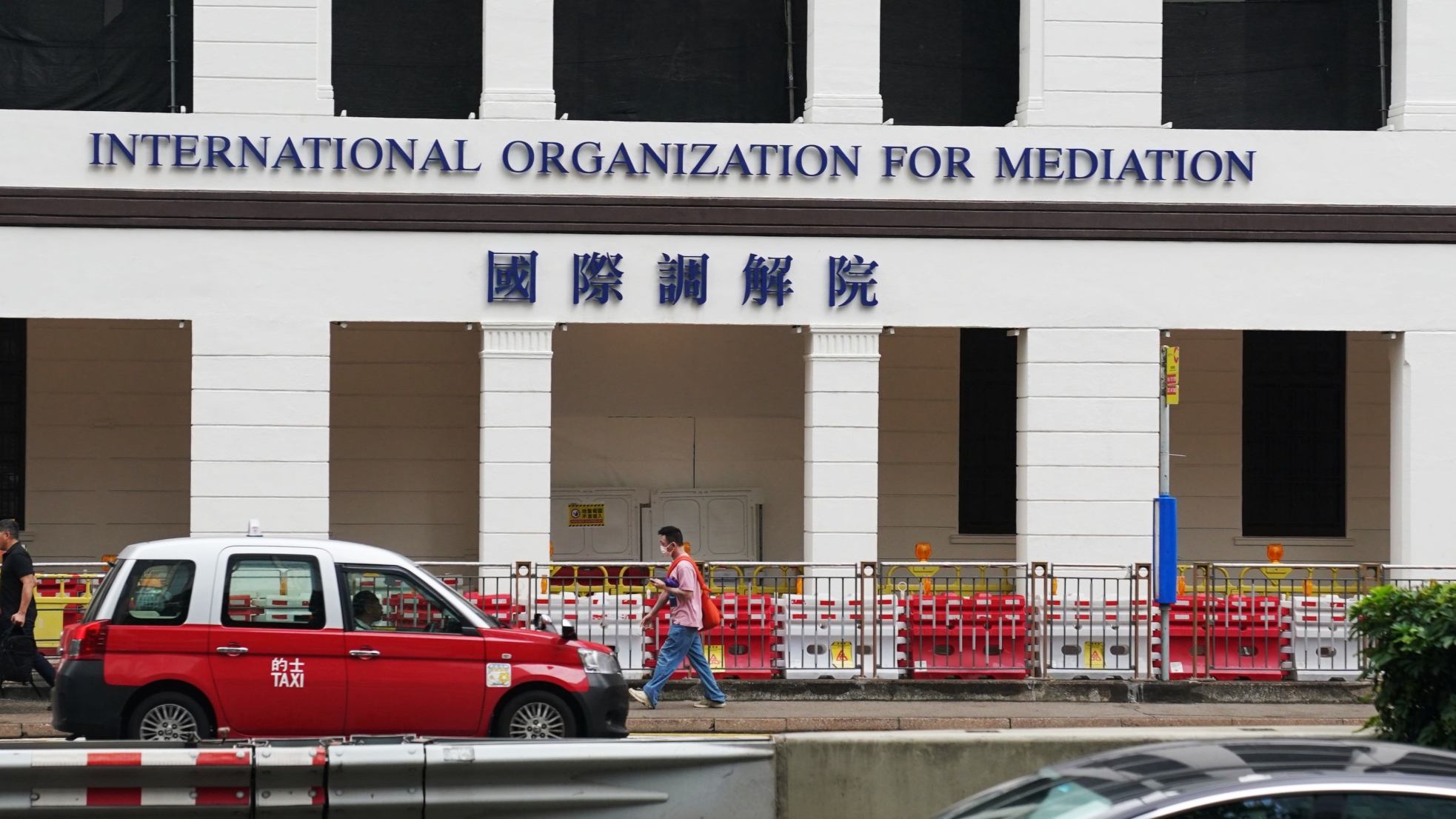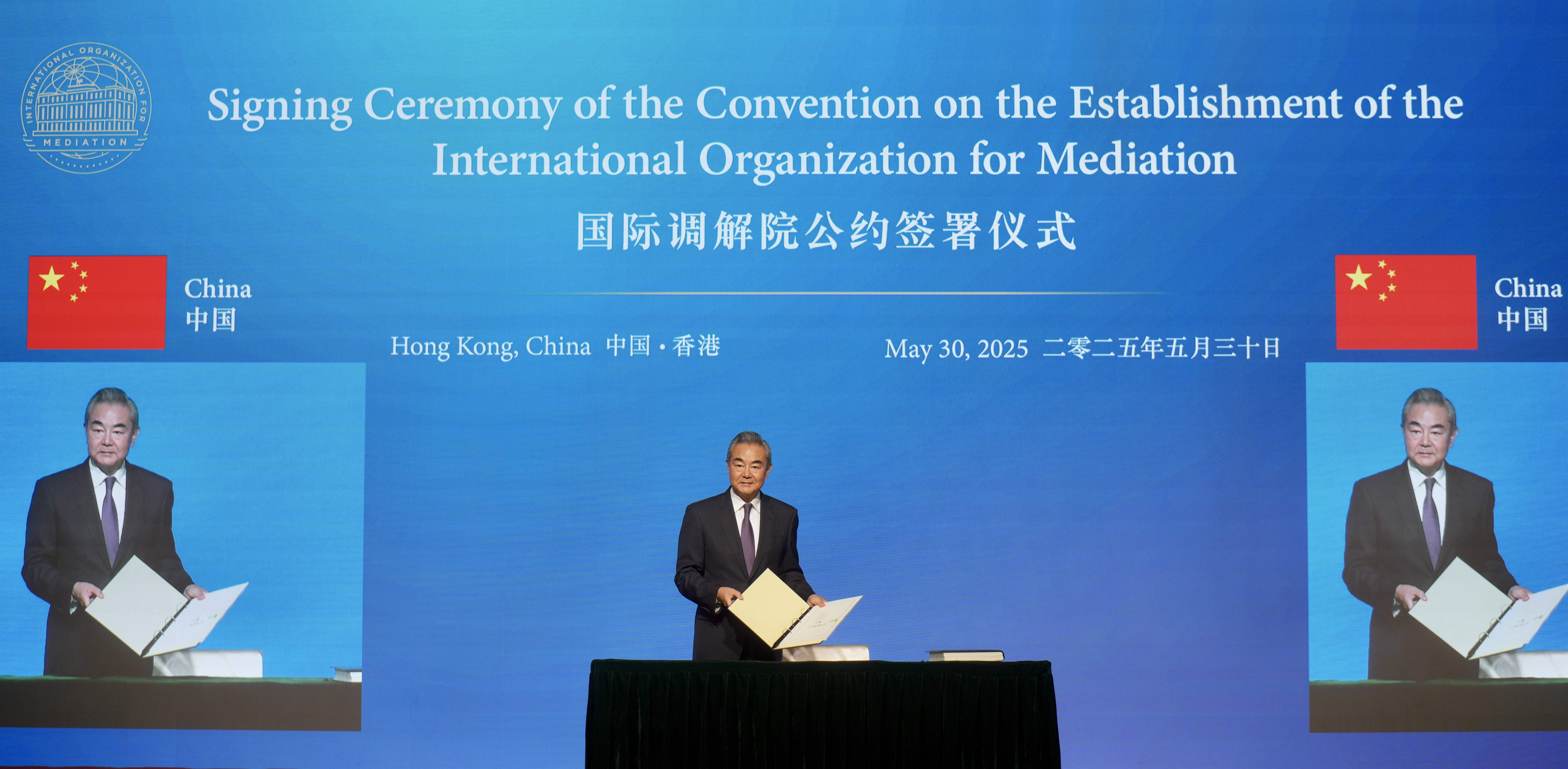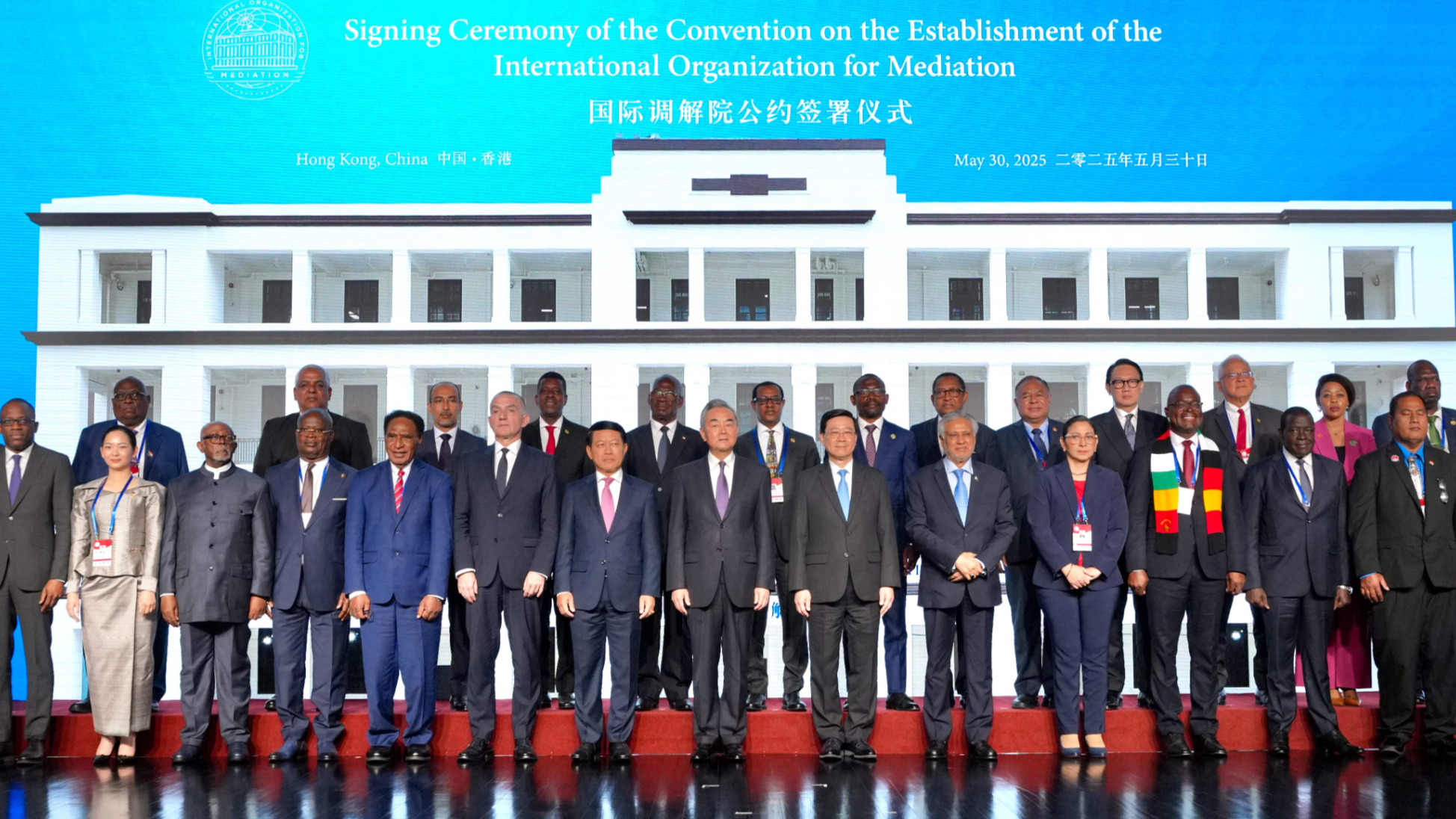
By opening up a new path for resolving international disputes, the International Organization for Mediation will strengthen Hong Kong’s position as an international legal and dispute resolution services center in the Asia-Pacific, as well as the city’s competitiveness as a global financial, trading and shipping hub in fostering ties with the Global South, Financial Secretary Paul Chan Mo-po said in his Sunday blog.
Thirty-three countries, including China and those from Asia, Africa, Latin America and Europe, signed the Convention on the Establishment of the International Organization for Mediation on May 30, while more than 50 countries and nearly 20 world organizations, including the United Nations, sent senior representatives to the signing ceremony.
Wang Yi, a member of the Political Bureau of the Communist Party of China Central Committee and Minister of Foreign Affairs, signed on behalf of China. The event was also attended by Chief Executive John Lee Ka-chiu and other senior officials of the Hong Kong Special Administrative Region government.

“The IOMed can play a role in multiple areas, including disputes among countries, disputes between a country and investors from other countries, and disputes in international business. All of these disputes can be mediated according to the wishes of the parties, opening up a new path for resolving international disputes,” Chan said.
An efficient, fair, equitable and trusted dispute resolution mechanism is one of the important pillars for promoting more international investment and trade, and enhancing investor confidence. In recent years, more and more bilateral or multilateral investment and trade agreements have included mediation as one of the ways to resolve disputes.
“According to some international studies, among the approximately 4,000 international investment agreements, about one-third include the mediation option, including the Regional Comprehensive Economic Partnership Agreement and the ASEAN Comprehensive Investment Agreement concluded in recent years,” the finance chief said.
Compared to arbitration, mediation has the advantages of being more flexible, more economical, more convenient and more efficient, and helps maintain long-term relations between the parties in dispute.
ALSO READ: Experts: IOMed institutionalizes mediation, complements existing rules
In the past three decades, the global economic center of gravity has gradually shifted eastward, with the gross domestic product of the entire developing Asia, including China, having gone up from less than seven percent in 2000 to about 24 percent.
“These countries hope that their views can be more fully valued in the global governance system. In recent years, more and more Asian and African countries hope to adopt mediation as an option for resolving disputes other than arbitration", Chan said.

The setting up of the IOMed headquarter in the SAR shows that the city has gained full trust from all parties under “one country, two systems”, and is further developing its unique role and function.
“As the only common law jurisdiction in the country, Hong Kong is the most ideal location for the establishment of the IOMed, with its excellent rule of law, comprehensive legal and dispute resolution services, a bilingual environment and tolerance of different cultures,” Chan emphasized.
Hong Kong has continuously beefed up exchanges and cooperation with the Global South nations in finance, trade, investment, innovation and technology, the digital economy, law and education, as well as tourism in the past two years, he noted.
An ETF (exchanged-traded fund) tracking the Saudi Arabian stock index was listed in Hong Kong in 2023, two ETFs tracking Hong Kong stock indices went public in Saudi Arabia last year, and the first Islamic bond ETF was listed in the SAR last week - the first ETF product in Asia that tracks Islamic bonds (Sukuk) issued by the Saudi Arabian government.
“All these reflect the frequent interaction and exchanges among the financial markets of Hong Kong and Saudi Arabia, and show that Hong Kong continues to make new explorations in cross-border financial innovation,” Chan said.
The local technology industry held an international summit focusing on the data industry last week, bringing together government and industry representatives from many member states of the Association of Southeast Asian Nations, as well as experts and scholars, to share experiences and exchange ideas on topics like industrial cooperation and cross-border flow of data, using data to promote the development of small and medium-sized enterprises and smart cities, the future of artificial intelligence, and narrowing the digital divide.
READ MORE: Explainer: What is the IOMed?
The Global South’s population is very young, and its political environment has been relatively stable in recent years. These countries all want to focus on the economy and promote economic diversification whereas they are willing to invest more resources in infrastructure development, green transformation, digital economy, and the improvement of public services.
“As an international financial center and a world-class professional service hub, Hong Kong is naturally their ideal partner,” Chan said.


